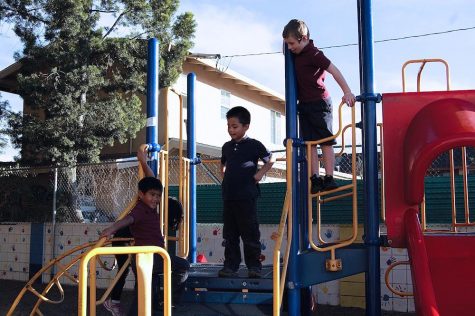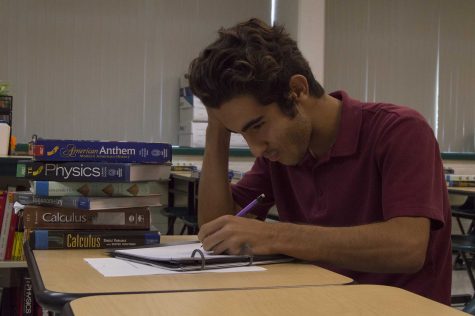Suspension lacks reason
No school for a week? Great! Can you make it two?

Photo via Glendale Unified School District under Creative Commons License
Suspension rates in GUSD have declined over the past five years.
Being forced to go to school every day is bad enough; being forced to stay out is a blessing. So when a student is suspended due to bad behavior, are they really being punished?
Suspension essentially acts as a vacation for the student, a couple of days or weeks off due to bad behavior or some form of disobedience. Missing a day of school is missing six hours of instruction time, depriving the student of their education.
Perhaps a student misses two weeks of school; that’s missing about 60 hours of class time. This is clearly an issue. The student’s behavior interferes with his or her education. Why jeopardize a student’s education for being late to school a few times too many, or making an inappropriate remark in class? Such minor disruptions fall under the category of willful defiance. Willful defiance accounts for 43% of suspensions today, according to a recent article published by the ACLU.
School officials should find another form of punishment. Students are told how important it is to attend class, yet by enforcing suspension, these officials are telling students to stay out. They need to find a way to keep students in school rather than forcing them to stay out. In no way does suspension encourage a student to behave well or change any previous toxic habits.
Suspension does not work. Due to the growing concerns over how suspensions are being given at schools, several individuals got together to create a better environment for students who understand their own needs. According to an article in Education Week, Gov. Jerry Brown signed five different bills in 2012 which create guidelines for how suspension should be used. The bills called for guidelines to make suspension effective, as it is currently ineffective. Each bill tackles a unique problem.
In Sept. 2014, California became the first state in the nation to eliminate suspension for its youngest students along with expulsions for minor misbehaviors. This was part of an ongoing attempt by Brown to enforce positive discipline in order to keep children in school. This, however, is not enough. High school students are still subject to suspension. This law should also apply to students of all grades. And once these laws are enacted, are they actually enforced?
School discipline reform has become an important issue in California because the harm that is caused is clear. Research has shown that even one suspension makes a student five times more likely to drop out of school, thus increasing their chances of getting in trouble.
According to a Time Magazine article in 2012, suspension rates prior to 2012 doubled over the past three decades across all grades. This suggests that suspension does not work for its intended purpose; schools are using it more and more because they are unable to deal with behavior issues.
Rather than suspending a student and forcing them to stay off campus, school officials should encourage these students to instead improve the habit they are being called on. And if that’s too difficult of a task, as is apparent even with well-behaved students, they should not be given what they want as a form of punishment. What student doesn’t want a week off from attending school? Students who are suspended for the most part are not seeking more academic stimulation.
A better alternative to suspension would be to make the student attend school when they would not want to, like after school or on the weekend. The student should work during the extra hours they are told to attend school. Students who are suspended from school do not go home and spend their time doing something productive. In fact, students who were suspended had a higher arrest and dropout rate, according to national scholastic experts.
Education is one of the most important factors in the growth of a young person; anything that hinders even one student’s education is harmful to society as a whole. Suspension is something that only hurts a student’s education. Since suspension can be prevented and is not helpful in any way, it should not be school policy.

INTERESTS/HOBBIES: When I'm not doing homework, I like to catch up on sleep. I love eating and reading, and reading while eating. But the majority of...







